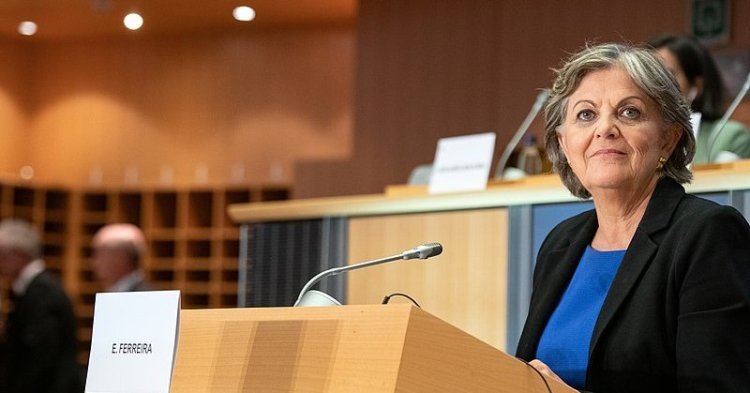Even before the current crisis caused by COVID-19, interregional inequalities were growing and have been increasingly flagged by academics and economists, including most notably Thomas Piketty, as a cause of concern. Arguably, it is one of the greatest challenges currently facing many advanced democracies. In this day, age and context, what is the value of cohesion policy for Europe in tackling this issue?
Substantial convergence has been achieved, but whenever there is a crisis, stronger regions can resist better than weaker ones. Given the current crisis, we expect imbalances to increase – indeed, we are seeing this already. When we look at the economic side of this crisis, regions more which depend more heavily on physical contacts – tourism, culture, industry – are being affected more heavily by lockdown. This is why we needed a combination of instruments to foster the recovery – and this convergence is historical.
We have been able reprogram old funds from the national envelopes to form the “CRII” [Coronavirus Response Investment Initiative] and finance medical equipment for hospitals or digital equipment for schools, among other things. This will be complemented by an extra €47.5 billion from cohesion policy in the form of “React EU” [Recovery Assistance for Cohesion and Territories of Europe], which will last until 2023. Then we have the aid from the Multiannual Financial Framework [the European budget for 2021-2021], which will last from 2021 until 2027. We also have the “Just Transition Fund”. Without going into details, all these instruments join forces to create a “bazooka” of investment! We want to stimulate growth – but not the same growth as we had before.
Speaking of changing the type of growth we want to see in Europe, let’s move on to the longer term crisis we are facing. Cohesion policy has been very useful and flexible in this rapidly developing health crisis, despite limited EU competences in health policy, which would have allowed a more coordinated response by the EU overall. In several sessions this week, you spoke quite optimistically about the potential of cohesion funds with regard to the climate emergency, yet I would argue that we have not seen the progress that we need given what the science is telling us. Are we on track with regard to using cohesion funds to assist our transition to a greener Europe, or should more be done?
We are on track, provided that we speed up the processes to move it to the front of the agenda. We have the substantive plans, but then there are all the procedures. For us at the Commission, we need to go the markets to borrow. We need the agreement of the Member States and in a lot of cases they need to go to their own parliaments to get approval. On top of this, we still have to finish with the Multiannual Financial Framework which is in discussion with the European Parliament, which is attaching many conditions. The third dimension is that we are finishing the legal texts. Tomorrow I’ll be in a three-way dialogue with the two co-legislators [the Parliament and the Council] and with the Commission – usually this takes a long time, but it is visible that all three institutions are doing their best to finish this. But everything must go right. If it does, we are on track.
In the media, cohesion policy mostly attracts coverage for the misuse of funds. While problematic, this misuse represents only a very small proportion of the total funds and therefore the coverage is not reflective of the overall impact of cohesion policy. What is your view on this?
The first thing I did when I began my job is to ask for the numbers in terms of the fraudulent use of funds from the last completed Multiannual Financial Framework, which ended in 2014 – the figure was less than 1%. However, this does not mean that the rest of the money is used as we intended it, as there is also some misallocation or some administrative errors. But this is not the image people have – the public have an image of massive fraud. However, we have a series of checks – by the Member States, by the Commission, by the Court of Auditors – and we aim for zero fraud.
And what about rule of law conditionality?
It’s important to treat this is a separate issue – fraud is about not declaring a conflict of interest, or where the money was received and the project was not executed. Rule of law is another issue. But as cohesion funds come from taxpayer money, any misuse is a very serious issue and it is a huge responsibility to manage this. But it is the exception not the rule - in countries like my own country, Portugal, it is amazing how much progress has been sped up, in quantitative and qualitative terms, by the effective use and management of cohesion funds.
In the UK, where I am from, some regions such as Cornwall received considerable amounts of funding, yet voted heavily to leave the European Union. Upon realising the impact of the loss of funds, local authorities tried to ask the national government to replace these funds. This highlights a lack of public awareness of important benefits of being an EU member state. What should we be doing to help the public understand more - is it the responsibility of the media or the Commission?
It is the responsibility of everybody. You can’t ask for more funding when a crisis hits yet complain that money pigeonholed for development is badly spent. We have to be very serious about the selection of projects. There must be transparency, accountability and involvement of all stakeholders, so that people can be enthusiastic about the projects. Local entities are formally and legally obliged to make a sign to show EU funding has been used, but when they speak about the project, they often underplay the role of the EU. We need some honesty about what Europe is doing, especially as Europe does not decide alone what a certain region needs - it’s a partnership, that’s why we have multilevel management in which regions have an active role in allocating the funds.
It’s my second time covering the EU Regions Week here in Brussels, and both times I’ve learnt so much about cohesion policy. What is the most important thing that you have learnt about cohesion in your time working on this topic?
I’m an economist and university professor by training and I have worked on cohesion policy almost all my life, from both a theoretical and practical perspective. It is important that we do not see these funds as expenditure, but as investment. I hope and trust all the levels of decision-making but I also ask citizens to be active in preparing the kind of projects that will be shaping our lives for the next budgetary period of cohesion funds.


Follow the comments: |
|
